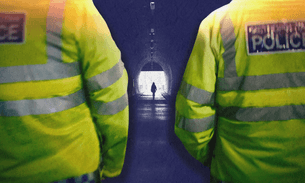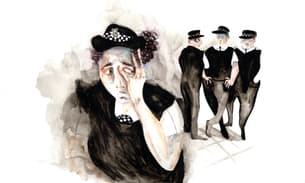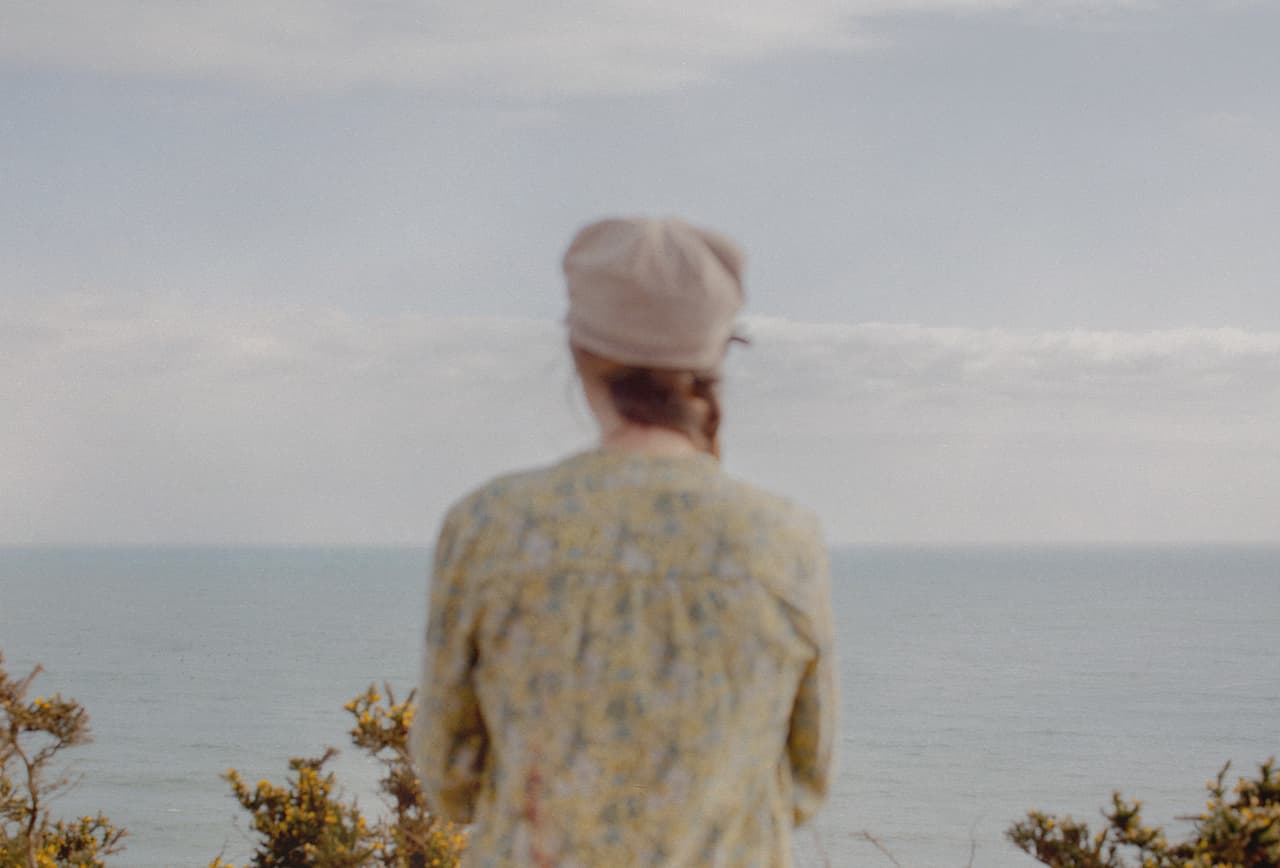
She married a police officer. He turned his training on her
Content warning: This story contains descriptions of domestic abuse, rape, suicidal ideation and self-harm.
In the winter of 2009, the waiting staff at a countryside wedding weaved around 40 or 50 guests. Outside, the December air was frosty, and the banquet hall at the venue was full of drunken chatter. Wine and local mead spilled out of clinking glasses, and a harpist hired for the ceremony was heading home before sundown.
That night, the bride was Cora. The bodice of her second-hand dress stretched tightly across her pregnant belly. She had a rosy nose from the chill, dark curls tucked behind pointed ears and large, sunken eyes the colour of the coast. “I remember thinking she looked beautiful,” her friend Rebecca said.
Cora had dated Steve, the groom, for several years before they got married. By then, they had two sons and a daughter on the way. When her father, Paul, had first met Steve, he warmed to him instantly. “Steve was down to earth, a policeman,” Paul said. “Quite a pleasant, helpful chap. A village bobby was a perfect job for him.”
When the time came to give his speech, Paul stood up and cleared his throat. His watery eyes flitted from the sheet of paper in his hands to Steve, sitting a few seats away. He could not have chosen anybody better, he confessed. “Simply for the way he treats and makes my daughter feel about herself,” he said, “I cannot thank him enough. So, Steve, thank you.”
To some of the guests, the bride seemed distant. “For us, it was nerves – it was her wedding day,” Paul said. Steve’s cousin took photographs of the family against a backdrop of evergreen, rolling hills. “She had this smile,” Rebecca recalled. “A little bit forced. I remember her turning and having this kind of open-eyed, held smile.”
Cora burned those photos a year ago. She could not bear to look at them. The woman smiling back at her made her feel anxious and angry. “I just wish I could go back and save her from all of that,” she told me, when we met in the small house she shares with her three children and menagerie of pets. “Whenever I saw [any photos], I just always thought, gosh, she’s so sad. How can nobody see how sad that woman is?”
We sat in her living room, where her south-facing windows drenched us in sunlight. The room doubles as an exhibition of her creative pursuits: a chandelier hanging above the dining table she crafted from ribbons and strings of beads; blankets and dreamcatchers she crocheted herself; and handmade stuffed dolls perched on shelves lined with fantasy novels and stitching manuals. Cora wore a bright, flowing dress and sat with her legs tucked under herself. Several people later described her to me as “a fairy”: slight, pretty and softly spoken. Her dog settled between my feet.
For a decade, Cora says, she had suffered coercive, psychological and sexual abuse at Steve’s hands. In particular, she believes he used his extensive police training to terrorise her and their children during and after their relationship. She says a marriage counsellor once told him: “Cora feels like she’s not a person in the home. Like she’s a prisoner. You treat her like you would someone you’ve arrested.” It gave her clarity: Steve was never off duty.
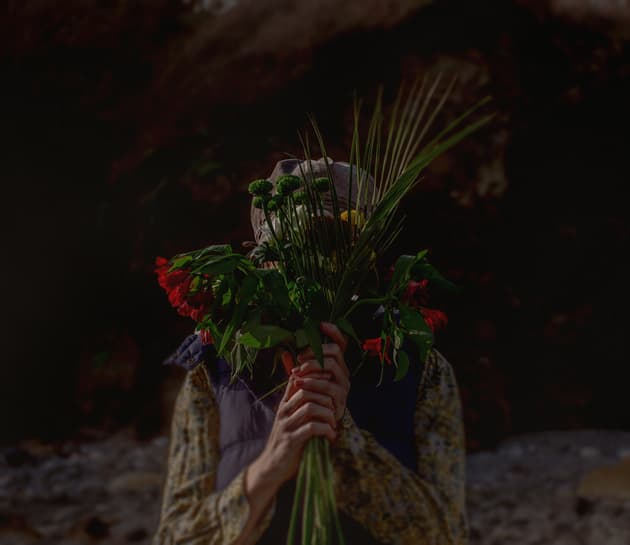
Steve’s abuse would eventually trigger a severe mental breakdown that, for months, robbed Cora of the ability to form coherent sentences or to function without tremors, she says. She would later be diagnosed with post-traumatic stress disorder and experience short-term memory loss. She would be left with a list of triggers she remains conscious of, even now. And she would never trust the police service again.
New information obtained through freedom of information requests by the Bureau of Investigative Journalism reveals that more than 1,300 police officers and staff across the UK have been reported for domestic abuse since 2018. Some 82% of reported police staff are still working: patrolling the streets, responding to calls from vulnerable victims, arresting violent perpetrators. Only 3.4% of these officers and staff have been convicted, compared with 6% of the general population.
That means police staff across the country reported for domestic abuse are more likely to get away with it, keeping their jobs and avoiding potential jail time. The new findings raise urgent, difficult questions. What makes police-perpetrated domestic abuse so prevalent? Is there a wider, systemic issue that lets some officers commit abuse with impunity? And who do victims turn to when their abuser is part of the very system that pledges to protect them?
Cora met Steve when she was 16. At the time, she was dating Steve’s friend James. She would catch glimpses of Steve, buzzing between parties or nights out he was always invited to. In those fleeting moments she found herself drawn to him like a plant to the sun. At 18, he was good-looking, energetic. He never backed down from a fight.
James was possessive and spiteful – neither the first nor last in a series of men who tried to control her. But no one scared Cora as much as her mother. Every day, she and her older sister Jess cowered in the face of her unpredictable fury. “She’d always come in and drag us out of our beds at night by our hair. She’d hit us in places where there’d never be bruises,” Cora told me, pointing to her ribs and her back. “And it was the words and the abuse and how much she hated you.”
They moved frequently, around council estates in the south-west. As a child, Cora was scrawny – the terror at home withered her appetite – and failing at school. She was dyslexic with nimble, creative hands. She was fiercely protective of Jess, who had asthma and a meeker disposition. Once, after sticking up for her sister, Cora remembers their mother pinning her up against the wall by her throat. She was 13, she says, half-dressed in her school uniform, hair and teeth unbrushed, struggling in vain against her mother’s grasp. She closed her eyes and hoped it would kill her. (Cora’s mother, now untraceable, could not be contacted for comment.)
Got a Story?
We welcome tip-offs from the public and we always protect our sources
Find out how to work with usPaul had left when Cora was 11. “He just sort of vanished. He couldn’t cope with my mum. He abandoned my sister and I to her and left. So, we then got the full force of her.” It would be five long years until she saw him again, and 20 more before they developed anything like a relationship. It was Steve, not Cora, who wanted Paul to be at the wedding. “She’s never forgiven me for not being there to protect her,” Paul told me.
As teenagers, Cora watched Jess seek refuge in aggressive men and at the bottom of brandy bottles. Cora’s response to the situation at home was to withdraw and to blame herself, biding her time until she escaped to university. But she could not shake the thought that if you peeled back her skin, she would be rotten inside. “I didn’t know how to love because I had never been loved,” she said.
Cora reconnected with Steve in 2005. She was sofa-surfing after a year of backpacking overseas, with plans to teach English in Asia. Steve was serving in the Metropolitan Police. “It was like a needle in a haystack, really,” Paul said. “I mean, two people from the same area had gone in different directions and then met up again.”
Steve urged Cora to move nearer him so they could get to know each other. But before they could date, he told her, he needed to check with James, her ex-boyfriend. Confused, she thought: “Hold on a minute. You want his permission? You want him to pass me on to you like a possession?” All of a sudden, she felt, the power to make her own choices had slipped from her grasp and into his.

A few months later, Cora broke up with Steve – and then found out she was pregnant. “He was delighted. I was in tears, I was shocked. He rang his mum and said he was having a baby. And that was it: we were together,” she said. “I didn’t feel like I had a choice in it.” She described feeling like she had just boarded a fast train. The doors were sealed, and her life flew past her in a blur.
Fragments of life with Steve gleam in her memory. When they were out, he was always the one to determine when it was time for Cora to go home. She was not allowed to take baths on her own; he’d make her bathe with him, wash him and give him oral sex. She did not have any access to money, or a mobile phone.
And there was the constant checking in. Cora says Steve would ring the house phone at least twice a day or drop by, dressed in his uniform. She remembers the heavy steps of his steel-toed boots, which made him a few inches taller, and the police radio, always switched on, crackling on his shoulder. His Taser was holstered on his bulletproof vest – he was one of the first people in his force to get a licence to use one. He had even tried, and failed, to join the armed response unit in London. “He wanted to be around guns,” Cora said.
In her mind, all of Steve’s actions were a vie for power. She told me he liked to manhandle his dog, and shut it in a small box room until he broke the animal’s spirit. “I mean, he was rough. He loved having fights with criminals. He’d go out in plain clothes and come back scuffed up, with [his clothes] torn,” she recalled. Sometimes, he used what she describes as “police-y moves” – used to detain prisoners – on her and the children as a show of force. “He used to do that to the kids, put his hand around their necks. It was awful. He’d press his thumb into your shoulder, just really squeezing it. And get your thumb and pull it up your back.”
The year they got married, they moved out of London and to an isolated spot, 30 minutes’ drive from the nearest town down a quiet, winding country lane. Thinking of that house sets Cora’s teeth on edge. She says Steve would not let her sleep; she was always chasing after the children. Her friend Rebecca, one of the few guests at the wedding from her side, remembers that she seemed “pretty much on her own with everything, she always had to do it all herself”. Cora cried often, in the bedroom and the shower. She says Steve dismissed it as postnatal hormones and told her police officers thought domestic abuse cases were “all bollocks”, that the force was “a family”. She would come to see this, much later, as a threat.
Things got worse when Steve returned from a week-long police training course designed to teach officers about trauma-led responses to domestic abuse cases. He was animated about what he had learned. Cora remembers him wide-eyed and wildly gesticulating with his hands as he spoke. It was unusual, she thought, since he rarely spoke about work. But that day, “he was delighted knowing this. That there’s a way in which [abusers] speak, there’s a tone. There’s these things called hooks, that you can control someone to that degree seemed exciting,” Cora said.
Steve’s abuse sharpened after that. Cora says it became non-verbal, silencing her with a look, tut or roll of the eyes. When he gave her orders, he projected his voice and looked her in the eye. But the rest of the time, he often refused to meet her gaze. “He got that from the course,” she believes. “He never did that before. He learned all that from the course.”
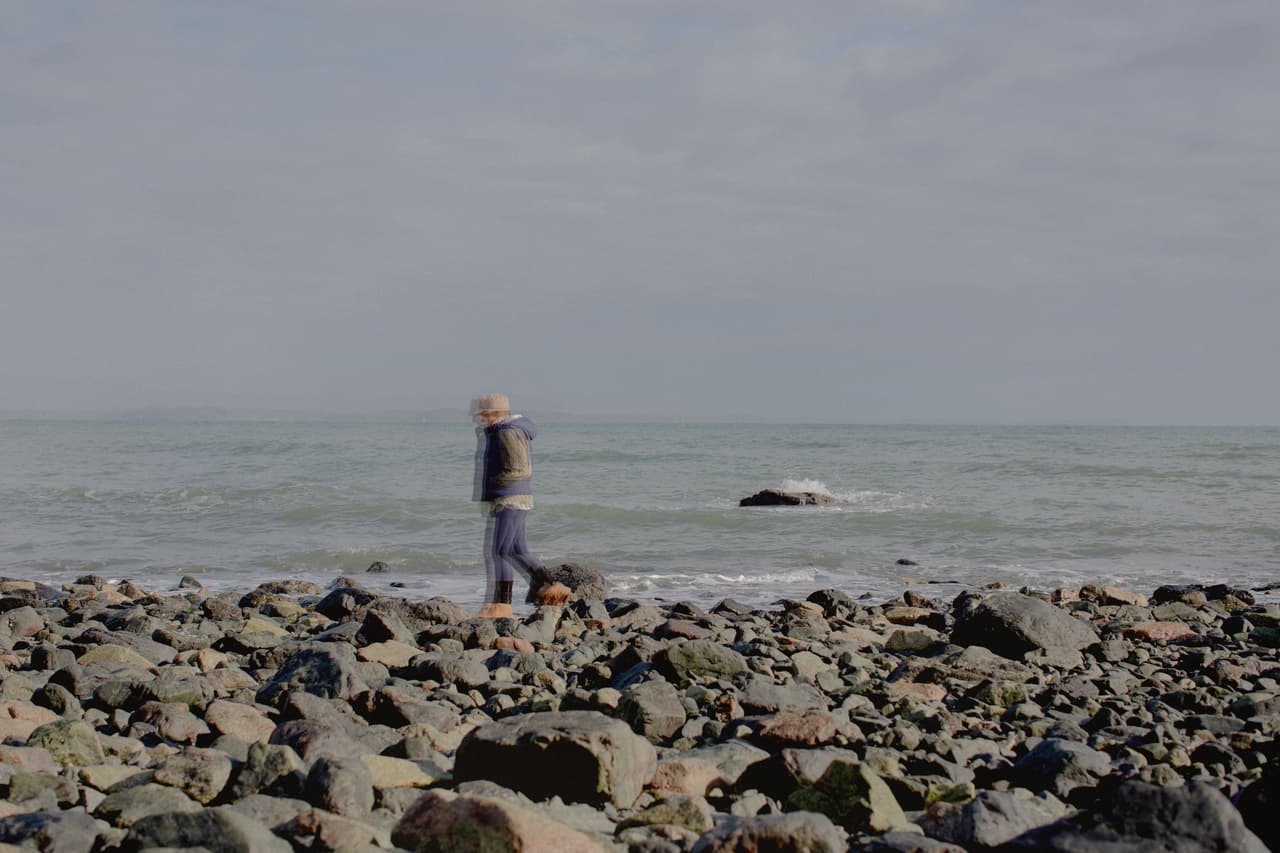
Around the same time Cora stuffed her wedding dress into a bin bag to take to the tip, she heard news on the radio about a 33-year old woman named Sarah Everard. Everard was kidnapped as she walked home by acting Metropolitan Police officer Wayne Couzens. He had been nicknamed “the rapist” by his colleagues. Couzens arrested Everard under false pretences, claiming she’d breached lockdown regulations, before driving her to a remote location to rape and strangle her. Cora could imagine it: how he might have spoken to her, the language and tone he could have used. It was overwhelming. Cora spent a session with her counsellor unpacking her response.
A vigil held in her honour on Clapham Common, south London, a week after Everard’s murder, was broken up by the Met, who arrested attendees and trampled on laid flowers. Patsy Stevenson, the woman who was photographed pinned to the ground with her hands held behind her back, later told The Evening Standard: “All the time I was being handcuffed and taken away I was thinking, ‘This is how Couzens got Sarah into his car.’”
The culture of British policing – in particular that of the Met, Steve’s old force – has been under increasing scrutiny over the past year. A report published last month by the police watchdog, the Independent Office for Police Conduct (IOPC), revealed a culture of misogyny, machismo and discrimination within a Met police station. The investigation uncovered disturbing WhatsApp messages between colleagues, including rape threats. One officer wrote: “Now I know why these daft cunts are getting murdered by their spastic boyfriends. Knock a bird about and she will love you. Human nature. They are biologically programmed to like that shit.” A week after the IOPC report was released, Cressida Dick, the first woman to hold the post, resigned as Metropolitan police commissioner.
As of 2021, men made up two thirds of police constables across England and Wales. The landscape is changing, with female officers accounting for 45% of all new recruits from July to September 2021. But higher up in the police ranks, the number of women is even lower.
Sonia, a serving officer in the Metropolitan police, joined the force as part of what some of her male colleagues called “the slag intake” because their instructors had relationships with three of the six young women in her batch of recruits. “It [was] a massive abuse of power,” she said.
Every potential recruit is posed the same question during the application process: why the police? Ryan, 53, a retired police inspector, joined the force more than 20 years ago, driven by a desire to help people through their most difficult moments. But he has since noticed a growing number of recruits drawn by something else. “I think there are most certainly people in the service that are attracted to what they see as a bit of a club. They like the camaraderie of it. There’s people who like the power of it,” he told me.
Sonia said: “It’s the nature of the place. You have an all-encompassing, powerful job. You can send someone to prison. That’s what some people join for: they enjoy taunting people.” She got into a relationship with a male colleague who physically and sexually abused her.
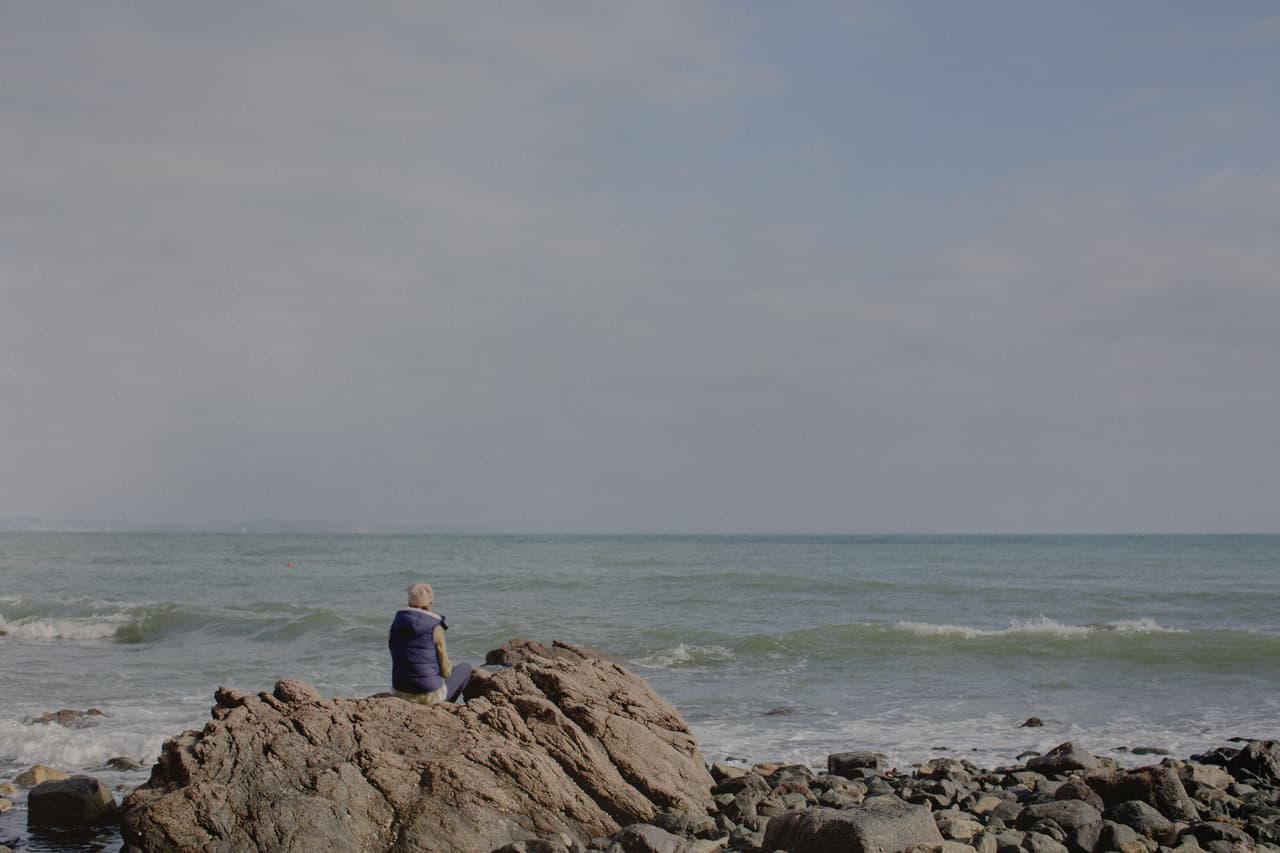
Academic research into this issue in the UK is scarce but Eduardo Vasquez, a forensic psychologist at the University of Kent, suggests one explanation for why police officers might be aggressive at home. It is a concept called “social dominance orientation”, which describes the desire for “your group [to be] dominant over others”. There are reasons, Vasquez said carefully, why you might expect this phenomenon to be higher in police forces. “If you find high levels of sexism and discrimination,” he said, “you would expect social dominance orientation to be high.” That, in turn, can lead to higher levels of aggression.
The problem is deeply embedded in the history of the police service, Vasquez said. “In the middle of the 20th century there was a selection bias in police forces wanting to select individuals who were tough, who were reliable, [and didn’t] rat out other police officers. And that means people who have problems with aggression.”
Then there is the nature of the work itself. Police officers in the UK are five times more likely to suffer from PTSD than the general population. Sonia thinks the constant exposure to brutality and suffering means it is not a sustainable job. “It’s not appropriate to work as a police officer for over 20 years, because of the trauma you see. I’ve had to tell people their sons have died. I know people have held babies when they’ve been battered and bruised,” she told me. “And then you’re expected to just go on to the next call. And I think that really messes with people. There’s no mental health support, there’s nothing.”
The Metropolitan police told the Bureau it offers a free employee assistance programme, counselling and volunteer chaplains for their officers and staff.
Domestic abuse specialists are wary of explanations for abuse that serve as justifications. “This myth, that perhaps perpetrators don’t know how to act in relationships because they’ve experienced something traumatic, is a commonly used one to excuse domestic abuse, and of course many people who do suffer from PTSD or other mental health issues do not become abusers,” said Ruth Davison, CEO of the UK domestic violence charity Refuge. “A perpetrator chooses to abuse.”
Alex Roslin, the author of Police Wife: The Secret Epidemic of Police Domestic Violence, said: “Experts on domestic violence generally say abuse isn’t about losing control or stress. Many other professionals have high job stress, [like] pilots and surgeons, without being known for massive amounts of domestic violence. Rather, it’s about imposing control.”

On their wedding night, Cora was in bed by 11pm while the rest of the party raged on for hours. She was exhausted, pregnant and sober. Cora’s body had never coped well under the duress of pregnancy; it was painful, uncomfortable and led to sciatica. “Jess told me that they were partying into the early hours of the morning, so they were all legless,” Cora’s father Paul remembers. Steve was drunk when he got back to their room, Cora said. She told me: “He grabbed me. And he shoved a pillow under my stomach. Shoved me down — and raped me. I was crying, I was saying no. He was laughing. Telling me how much he wanted to have sex with his new bride. And I couldn’t move. I was in so much pain.”
She says she was bleeding and thinking of her unborn baby. “I just remember thinking, ‘God, you’re such a despicable woman. You cannot protect your baby, you disgusting human being. How could you let this happen to your baby? You disgust me.’” Their daughter, she believes, hated Steve from birth – “that’s because of that night. She was there through that whole experience. She was there too.”
After it was over, she curled up and sobbed. “That moment, it broke something in me. That last little thread I had of being Cora just died. She died that night.” Much later she would write a poem about it, and the unrelenting sexual assault that followed.
He owns
he claims
the soft delicate vulnerability
between my legs
takes pleasure
that doesn’t extend
any further than him.
When day broke, the wedding guests bustled around, hungover but cheerful. There was no one Cora could turn to. “I just realised I’d made the biggest mistake of my life,” she said. “I felt like I had just done the most stupid thing by marrying him. I was broken, really broken, and never said ’no’ again.”
Cora’s mental health had been deteriorating for years before she hit her breaking point, in 2015. It came slowly, eroding away her sense of self until she felt she had disappeared completely. She begged Steve to leave. “When you’re in that fight and flight, you’re constantly surviving, you can’t fall apart, because you’re constantly trying to survive,” she says. “And as soon as he left, I started to fall apart, because I was safe.”
Very quickly she became suicidal and started self-harming. First, it was with sharp wood and stinging nettles, which left long red streaks down her arms. Then, she sought out the pain of tattoos. She lost so much weight that her skin sank into the hollows between her bones; she couldn’t eat, and said she was starving to death. Rebecca told me: “She just couldn’t bear [it] any longer. It was like she was totally oblivious to the abuse, at some level, totally oblivious to how she’d been putting his needs before her own. And then it just hit.”
A family services worker referred Cora to a support group, but did not tell her it was for victims of domestic abuse. When she went to the meeting, she burst into tears. “That was the first time I had any idea as to what was happening to me. I was in so much shock,” she recalled. A woman who attended the group with Cora said: “She would come into the group every week crying.” Another said that she looked terrified. “She was very scared of him. And I think she was scared for her children, scared for how things were, because he was so forceful.” Jane, a friend Cora met at the group, said that when she found out that Cora’s abuser was a policeman, it was like “a feeling where any glimmer of hope had gone”.
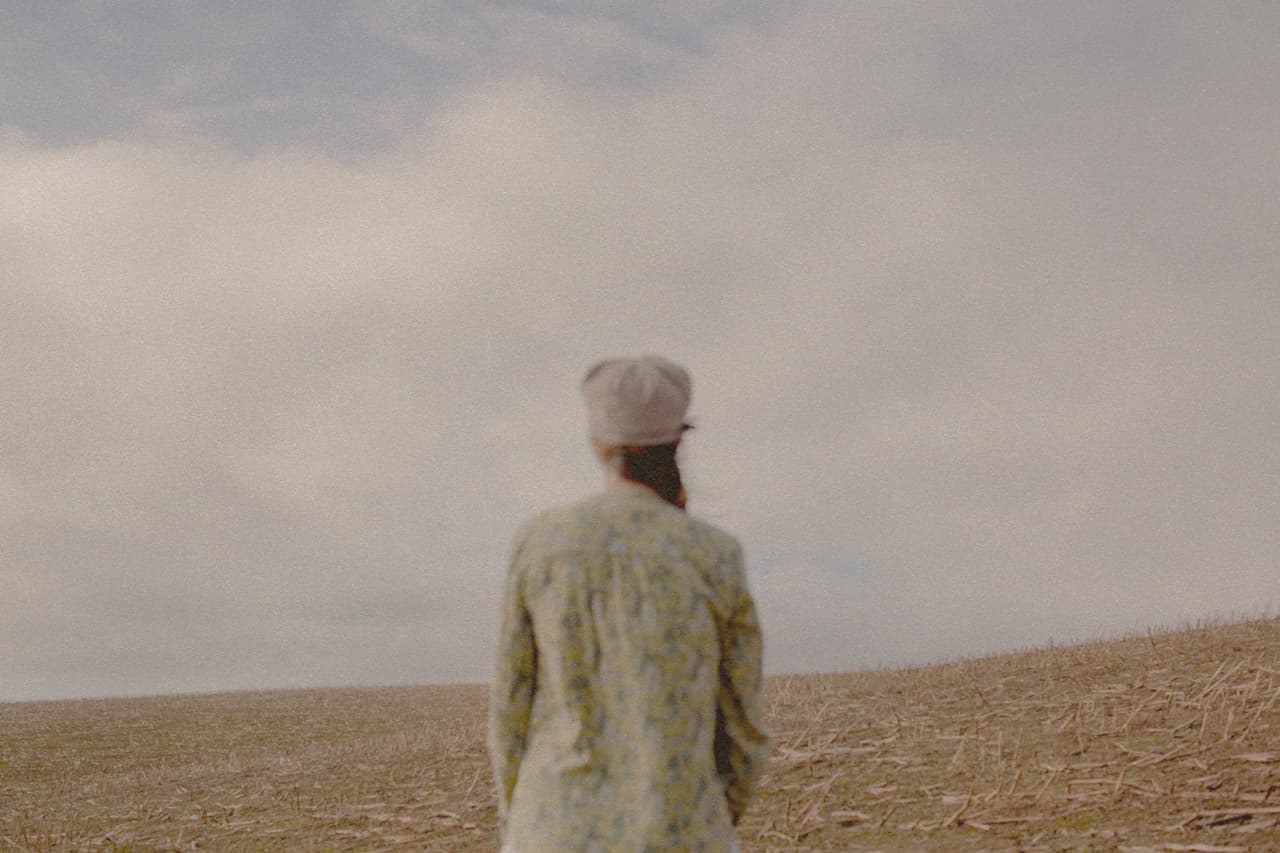
After he left, Steve told what seemed like the entire neighbourhood that he had been the victim. She and the children moved into a council house and her independent domestic violence adviser (IDVA) made sure that the housing association logged her anonymously. The notes in a “safety and support plan” devised by her IDVA read: Security of the home – check the doors and windows, are they secure? Agreed action: Will not disclose new location to abuser. Sanctuary referral for new address. Personal alarm to be kept within easy reach, especially when out and about. Mobile phone on person and charged at all times. Plan an escape route out of the home. Teach the children when and how to call 999.
But Cora says she suspects that Steve, perhaps using his training as an officer, was able to find her. One day, the window of her vehicle was smashed in, but nothing was stolen. A neighbour saw a man standing in Cora’s garden watching the house. Somebody graffitied her wall and cut a tunnel through the bushes in her garden for easy access. At the time, she phoned Jane in a panic. Jane recalls those lengthy calls: “She thought she was going crazy. She was freaking out saying, ‘You know, he knows where I live.’” Cora says: “Going through that process made me realise that trying to hide from these people is a mistake.” She now believes “they use the system to their benefit, even though they’re not supposed to”.
Evan Stark, the forensic social worker who coined the term “coercive control”, told me: “The big advantage police officers have in coercive control is stalking. [A policeman] has access to the equipment and information. He has access to ID systems, access to children's records, which we don't have. And [the fact that] he can blackmail and kidnap and things like that makes it very, very difficult.”
When she reported the incidents, an officer from the local force paid Cora a visit to take some follow-up details. She described the way he leaned back in his chair and told her he knew Steve really well. It seemed to Cora “like he was enjoying himself. I felt so uncomfortable. And in the end, I asked him to leave. Because I got what he was telling me. I heard the message loud and clear.”
According to Ryan, the retired officer, the true corruption in the ways police forces have dealt with allegations of abuse often lies in the cover-ups. The Bureau’s data exposes how British police forces have systematically closed ranks: of the police officers and staff reported for alleged domestic abuse in the past few years, less than 3% have been dismissed from their jobs. The others not currently working (82% are still in post) either resigned or retired. Only 9% have been professionally disciplined, a response which varies across forces and can mean anything from written warnings to brief suspension from duty. Essentially, a 10th of reported abusers walked away with a slap on the wrist – and the rest faced no consequences whatsoever.
“You have got senior leaders and managers who will surround themselves with people that are loyal,” Ryan says. “And actually, if you rock the boat, or put your head above the parapet, you don’t fit.” Another female ex-officer told me that after she reported her colleagues for sexism, “all those people that I would want to put my life on the line for turned their backs, every single one of them”.

Sonia eventually reported the colleague who had abused her to the police. He was not suspended, and continued to work for years, during which time he told their coworkers that the allegations were a lie. “No one, no rank, spoke to me for months,” she recalled. “I was left on my own at home, off sick. No one took any interest in me. I could have literally killed myself and they wouldn't have known.” A tribunal subsequently found her abuser guilty of gross misconduct and he no longer works for the police.
“It's important to remember that in police forces, especially if you're on the field, you rely a lot on your partner,” Vasquez, the forensic psychologist, said. “We human beings do not like being ostracised. And in a setting like [a police force], you feel it even more. It's dangerous.”
In 2019, Cora decided to report Steve, whom she had by then divorced. In one document, her independent domestic violence adviser, who felt too afraid to accompany Cora to court proceedings for fear Steve might target her too, flagged in all-capitals that Cora's abuser worked for the police: “WHEN SHE DISCLOSES HER ABUSE TO THE POLICE, HER RISK LEVEL WILL INCREASE DRAMATICALLY.”
The police force investigating Steve was his own. After nine months, they closed the case, citing insufficient evidence. Cora asked for a review, to which she received the response, via email, saying: “Rape and sexual assault cases are very difficult to prove as it is usually, as in this case, one word against the other.”
But when her IDVA looked for legal advice on the response, she was told that this was an incorrect application of the law. In fact, it has been incorrect since the mid-90s, when parliament abolished corroboration rules – the law that prohibited conviction of the accused on the word of one person – meaning cases, and prosecutions, can proceed on a complainant’s account alone. This is especially significant in rape and sexual assault cases, where there are rarely witnesses or video footage.
Cora’s solicitor sees this problem crop up frequently. “A lot of these decisions [to close investigations] that are made by the police; they haven’t necessarily had any legal advice, because they don’t always refer up to the Crown Prosecution Service before they close the case,” she explained.
And in Cora’s case, her solicitor argues, there is corroborating evidence. Her medical records note her PTSD and mental health issues as a result of the abuse. She was part of several support groups for domestic abuse survivors and had a specialist counsellor for more than two years. And her children, who had witnessed and fallen victim to Steve’s abuse themselves, were referred to emotional trauma therapists. Her youngest daughter had been taken on by a child adolescent mental health service. It was supposed to be an eight-week programme, but they kept her on for 18 months.
Eventually, the police reopened Cora’s case. (It was recently closed, again, with no further action taken; Cora intends to appeal.) Her solicitor is wary: “I don’t have faith that they properly investigated the case. It’s a case of police perpetrated abuse—it makes it look suspicious. It makes it certainly look as if they are not taking it seriously,” she said.
“It’s been three years fighting it. I still haven’t even got to the end of it. We’re still basically at stage one,” Cora told me. “I feel even today, I am bound by this person.”
Steve knows where she now lives, but she feels more at ease in the open. She bought a distinctive car so that people can recognise it. She lives sandwiched between neighbours, and her house has large windows that you can see into easily. Every day, she sacrifices her privacy for safety.
Therapy and creative outlets like poetry and painting have helped Cora to cope with the stress and anxiety. Her poems are contemplative, tinged with fury. They read like a push against a wall, desperate and unwavering. In one, she writes, A skin of black uniform / a bullet proof chest / Who serves and protects here? / Who keeps the peace? Her paintings are similarly bold, patchy smears of bright colours, characters with large, watery eyes and anxious, purple skin.
She showed me her recent work, an autobiographical account of living “in custody” with Steve. The style is new for her, and she said the process of revisiting that trauma was emotional, but healing. She propped the canvases in a row, piecing together her story. “They’re all about surviving the unsurvivable.”
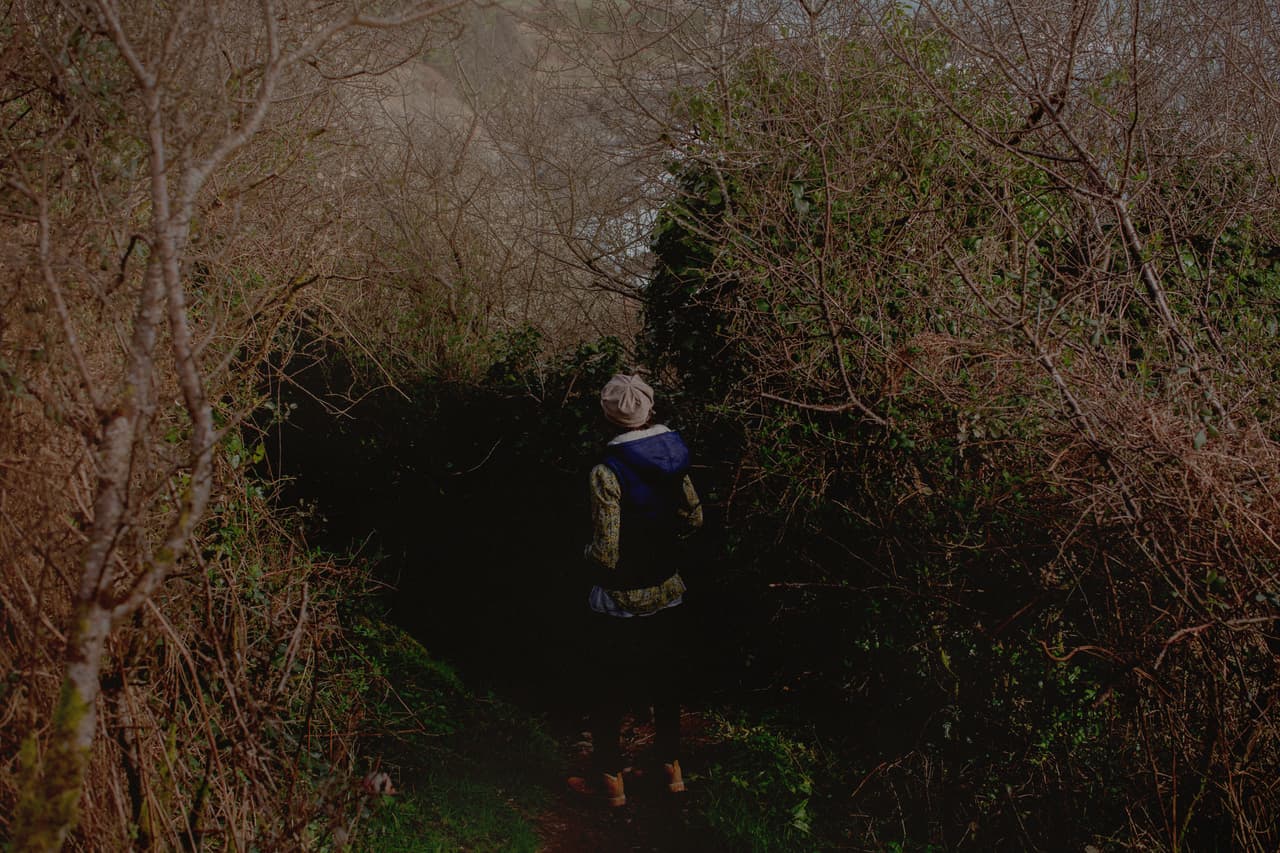
Names have been changed for legal reasons.
Reporter: Sarah Haque
Editor: Meirion Jones
Production: Frankie Goodway
Fact checker: Alice Milliken
Legal team: Stephen Shotnes (Simons Muirhead Burton)
Photography: Maisie Marshall
This reporting was supported by core Bureau funds. None of our funders have any influence over our editorial decisions or output.
-
Area:
-
Subject:


